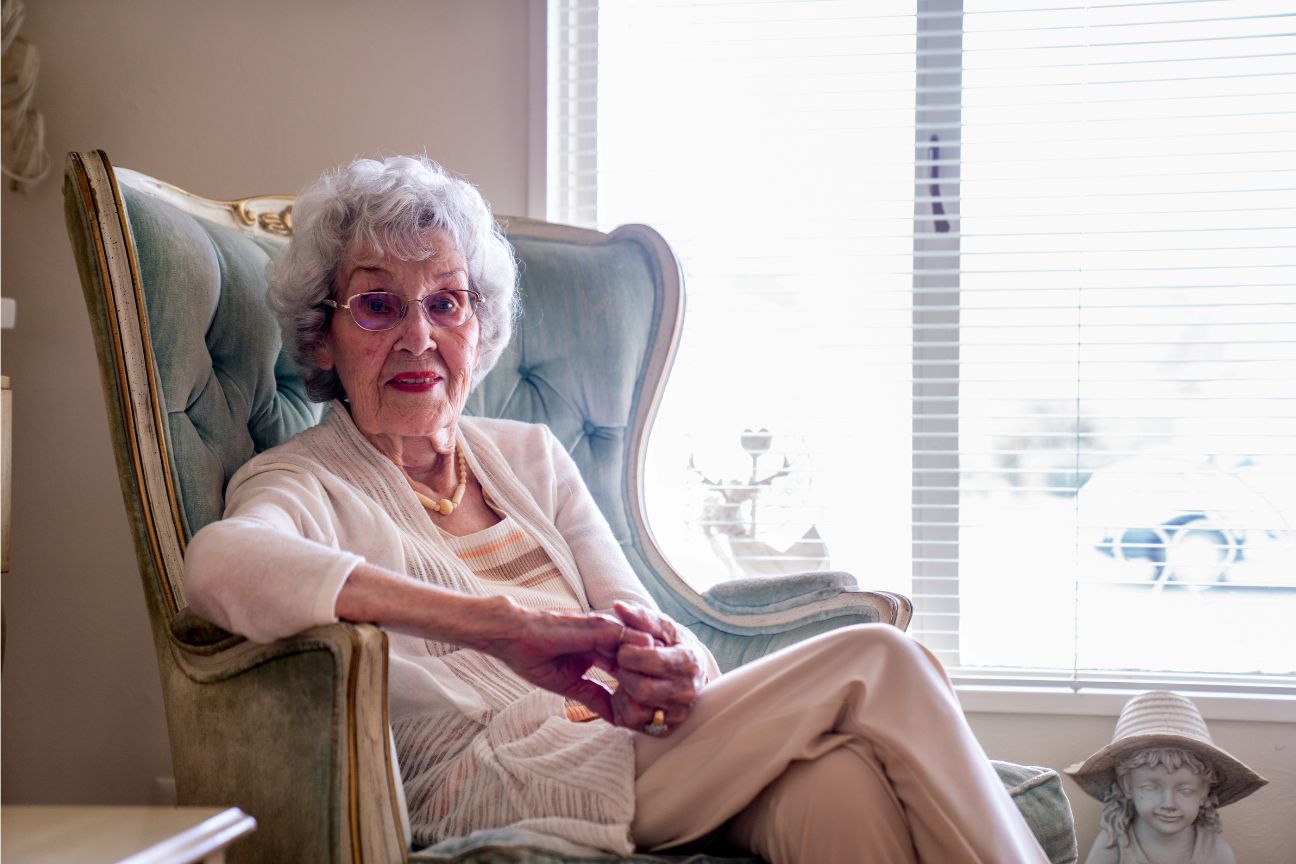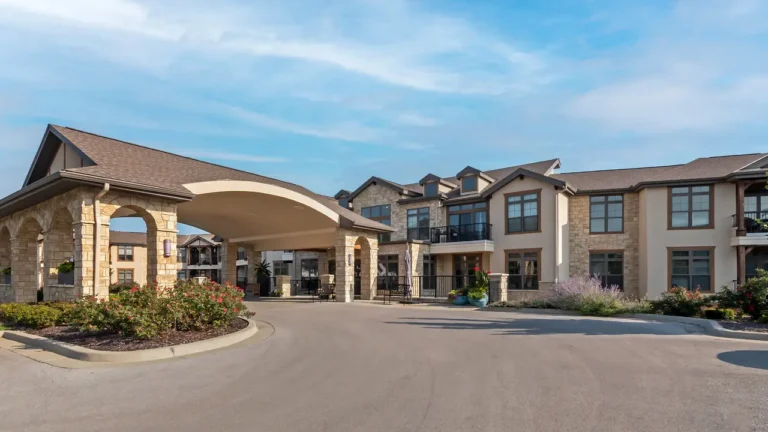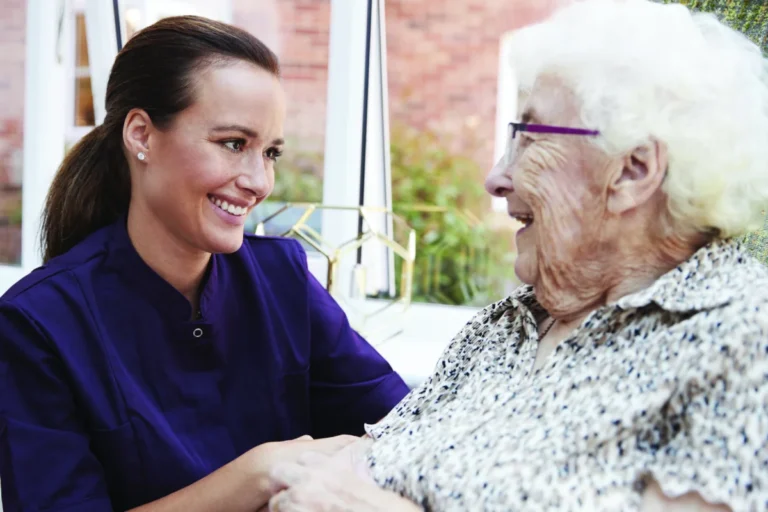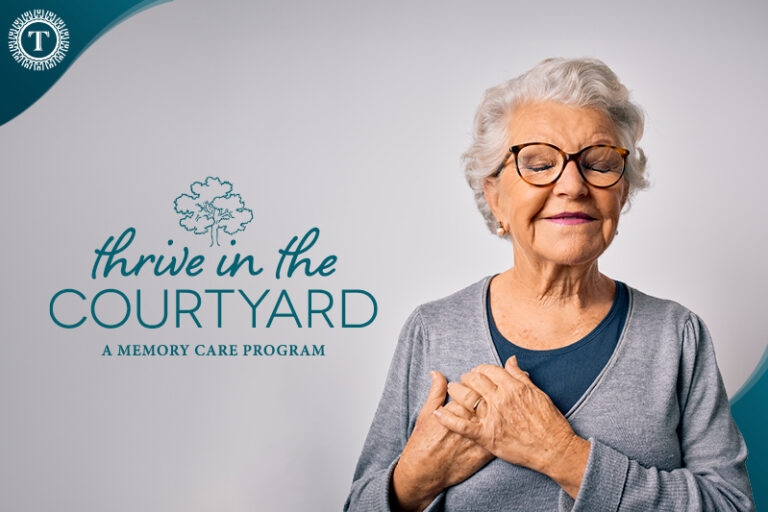The demand for quality senior living and health care service options has never been higher. As a result, seniors and their families can find various types of senior living with many health care options beginning with independent living communities and ranging up to memory care or hospice care. While independent living is a great choice for seniors ready to enjoy every moment without dealing with the hassles of home maintenance, other senior care forms offer higher support levels and more services.
Assisted living communities are among the most popular choices for seniors who enjoy their independence but require some support regarding short-term or long-term care during their day-to-day activities. An assisted living community frees residents from preparing meals, driving to appointments and maintaining a home while offering opportunities to socialize, relax, pursue interests and be included in a friendly community of peers.
If a senior is considering moving to an assisted living community, it is helpful to understand the signs that it may be time to think about a higher level of care, the benefits of living in an assisted living community and how to make an easy transition into a care facility.
When Is It Time for Assisted Living?

It is tricky to know when it is time to move an older loved one into a senior community. While there are some obvious red flags, like a change in overall health condition, a broken hip or a new chronic condition diagnosis, there are usually no clear signs that apply to everyone. However, there are some clues along the way to help both seniors and their friends and family recognize when the time is right:
Difficulty with medication management.
If a senior is not correctly taking, refilling and storing medication, they are likely not receiving the benefits of the medication or could be at risk of overdosing on medication and, as a result, could require more medical care.
Increased fall risk.
Frequent falls or the inability to get back up after a fall can show that a senior needs more help managing their daily routine.
Lack of focus on nutrition.
Has a senior loved one experienced a recent weight loss? A change in eating habits, a loss of interest in cooking or the inability to make healthy, nutritious meals alone are all signs that a senior’s diet may not meet their nutritional needs.
Poor hygiene.
Has a senior loved one developed body odor? Or do they have a difficult time bathing? The senior is no longer paying attention to their daily personal hygiene habits. Challenges with self-care may be a sign that the senior should no longer be living alone and require care services.
Changes in mobility.
Difficulty walking or getting up and down the stairs are signs a senior needs greater support.
Problems completing activities of daily living (ADLs).
The activities of daily living are basic self-care activities a person does on a daily basis. They include transferring, toileting, grooming, feeding, bathing, continence and dressing. The inability to do these activities can make living alone very difficult.
Inability to manage home upkeep.
Owning a home is a constant string of tasks and maintenance. From shoveling snow and raking leaves to dusting and vacuuming, there are many tasks that seniors may begin to find difficult.
A senior has become isolated.
No longer participating in activities outside the home or taking part in social gatherings are signs that a senior may be spending too much time alone. Socialization and engagement are both important parts of maintaining physical and emotional health.
A family caregiver needs help.

While friends and family may step in to support a senior loved one, there may come a time when the family caregiver becomes too overwhelmed to provide the necessary level of care.
Benefits of an Assisted Living Community
The golden years of life bring a vast array of benefits. Retirement offers more time to spend with friends and family, and leaving behind a day job opens up the opportunity to travel or explore new hobbies. All the newly acquired free time comes with the wisdom and experience of years passed! Moving into a senior living community can be another part of the great adventure of aging. To be sure that an assisted living community is the right choice, it is important to consider the benefits. These include:
A low-maintenance lifestyle
Rather than spending time repainting the house or washing dishes, residents in assisted living can enjoy hobbies, educational programs and social activities that fit their interests. For example, at Tutera Senior Living & Health Care’s assisted living communities, residents enjoy:
- Tennis courts
- Walking paths
- Putting greens
- Theater rooms
- Business centers
- Exercise equipment
- Darts and billiards
- Indoor and outdoor swimming pools
- Jacuzzis, spas and massage rooms
- Fireside patios and kitchens
Personal care options
Many activities, such as the activities of daily living (ADLs), become more difficult as we age. Residents in an assisted living community can live their lives to the fullest without worrying about dressing, bathing or safely completing daily tasks.
Safety and security
Accidents can happen at any time and anywhere. Assisted living community residents can rest easy knowing their environment is designed to promote safety, and their care team members are ready to help anytime!
Healthy living options and nutritious meals
Activities like strength training and yoga are great ways to stay in strong physical health, and paying close attention to eating a nutritious diet is an excellent way to fuel the body. For residents in an assisted living community, access to both exercise programs and nutritious menus allows older adults to live a happy, healthy lifestyle.
Access to transportation services
If driving becomes unsafe or simply becomes an unwelcome task, residents of an assisted living community will have access to safe transportation to and from outings and appointments. This type of transportation also removes the burden of paying for car washes, oil changes and new tires!
Opportunities to socialize

Social activities are a favorite benefit of assisted living communities. Residents can fill their weekly schedule with outings, games, classes, fitness programs and book clubs, or they can choose to meet up with friends for quiet dinners and spend their days taking long walks. Either way, they can surround themselves with like-minded friends, neighbors and peers.
Transitioning to an Assisted Living Community
The move into an assisted living community is an exciting time full of new possibilities and a time of change. Friends and family can help ease this transition by offering support, being present and actively helping their loved one adjust to their new environment. Here are some tips to make a smooth transition to an assisted living community:
- Visit the community before moving in, and prepare for the transition.
- Share a meal with the potential resident, friends and family before moving in. This will help everyone feel more comfortable!
- Understand the assisted living community’s costs and payment options.
- Discuss the excitement of this new opportunity, and make moving day a time to celebrate!
- Be open to listening to any concerns or apprehensions about moving, but focus on the positive and continue to bring up the benefits of an assisted living community that will be most helpful.
- Encourage participating in activities at the assisted living community, getting involved in social opportunities and spending time meeting new neighbors.
While the best time to move varies from senior to senior, it is always helpful to start planning early. Having candid conversations and making decisions together can allow seniors and their families to avoid conflict about the decision to move, have a plan in place for moving when the time comes, and have an assisted living community selected that fits the needs and lifestyle of the future resident.
About Tutera Senior Living & Health Care
Tutera Senior Living & Health Care is committed to creating the best possible experience for each and every resident. We operate under a YOUNITE philosophy, meaning we focus on your needs, preferences and goals. On a daily basis, we:
- Enable your healthy-as-possible outcomes
- Encourage your continued personal growth
- Empower you to direct and control your daily living
Offering independent living, assisted living, memory care, Thrive memory care, rehabilitation and extended stay and respite programs, Tutera Senior Living can meet the needs of seniors and their families throughout the aging journey. Our core values of respect, integrity, hospitality and positivity drive our decisions and program planning, ensuring choices are available for all seniors’ interests and needs.
Interested in learning more about a Tutera Senior Living community? Contact us at 1-877-988-8372 today so we can answer your questions and tell you more about our care and our culture. Want to explore your options for a community near you? Try our community finder tool and learn more about each Tutera location.






